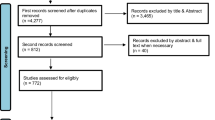Abstract
The authors of this paper are engaged in designing and developing telematic learning environments to assist in programmes of initial teacher training. Two aspects have been supported by European Union (EU) funded programmes: the Telematics for Teacher Training (T3) and Reflect projects. Telematics is a term describing the combined use of information technology and telecommunications. The authors are not searching for a pedagogy of telematics but are seeking ways in which telematics can assist pedagogy. Their work specifically addresses the question of whether it is possible to design such environments in a social constructivist paradigm and the evaluation of their work regularly returns to the theoretical model of learning central to their training programmes. The authors will show that whereas the aspect of video-conferencing keeps faith with their view of the nature of learning, the design of the website is raising some issues that have, as yet, to be resolved
Similar content being viewed by others
REFERENCES
Alkove, L. and McCarty, B. (1992) Plain talk: recognizing positivism and constructivism in practice. Action in Teacher Education 14, 16-21.
Bandura, A. (1996) Social Foundations of Thought and Action: A Social Cognitive Theory. Englewood Cliffs, NJ: Prentice Hall.
Brown, J. S. Collins, A. and Duguid, P. (1989) Situated cognition and the culture of learning Educational Researcher 18, 32-42.
Bullough, R. (1997) Practicing theory and theorizing practice in teacher education. In J. Loughran and T. Russell, (eds) Teaching about Teaching: Purpose Passion and Pedagogy in Teacher Education. pp. 13-31. London: Falmer Press.
Buchmann, M. and Floden, R. (1993)Detachment and Concern. London: Cassell.
Cooper, P. and McIntyre, D. (1996) Effective Teaching and Learning: Teachers' and Students' Perspectives, Buckingham: Open University Press.
Dewey, J. (1916) Democracy and Education. New York: MacMillan.
DfE (1992) Circular 9=92. Initial Teacher Training (Secondary Phase). Department For Education, Sanctuary Buildings, Great Smith Street, London SW1P 3BT.
DfE (1993) Circular 14=93. The Initial Training of Primary School Teachers: New Criteria for Courses. Department For Education, Sanctuary Buildings, Great Smith Street, London SW1P 3BT.
Feldmann, S. C. and Fish, M. C. (1991) An observational study of social behavior in microcomputer classrooms. Computers in Human Behaviour 7, 45-55.
Jennings, S. (ed) (1995) Supervisory Conferences in Teacher Education. School of Education: University of Exeter.
Kulik, C. L. and Kulik, J. A. (1991) Effectiveness of computer-based instruction: an updated analysis. Computers in Human Behaviour 7, 75-94.
Mason, R. (1994) Using Communications Media in Open and Flexible Learning. London: Kogan Page.
McShea, J., Jennings, S., Bennett, N. and Davis, N. (1996) The Exeter case study: the development of student-teachers' reflective practice through telematics. Project report, The European Union TSER (DGXII) Programme, Project No PL95-2161, (downloadable version at http:==www.ex.ac.uk=telematics=Reflect=reflect.htm).
MILE (1997) Multimedia interactive learning environment for future primary school teachers. Freudenthal Institute, Utrecht University, 3508 TC Utrecht, The Netherlands.
Papert, S. (1980) Mindstorms. Brighton: The Harvester Press.
Popper, K. R. (1963) Conjectures and Refutations: The Growth of Scienti®c Knowledge. London: Routledge and Kegan Paul.
Stubbs, M. (1987) Discourse Analysis: The Sociolinguistic Analysis of Natural Language. Oxford: Blackwell.
TTA (1997) Consultation document: training curriculum and standards for new teachers. The Teacher Training Agency, Portland House, Stag Place, London SW1E 5TT.
Author information
Authors and Affiliations
Rights and permissions
About this article
Cite this article
JENNINGS, S., DUNNE, R. & MCSHEA, J. Designing a telematic learning environment in a social constructivist paradigm. Education and Information Technologies 2, 307–325 (1997). https://doi.org/10.1023/A:1018681717878
Issue Date:
DOI: https://doi.org/10.1023/A:1018681717878




